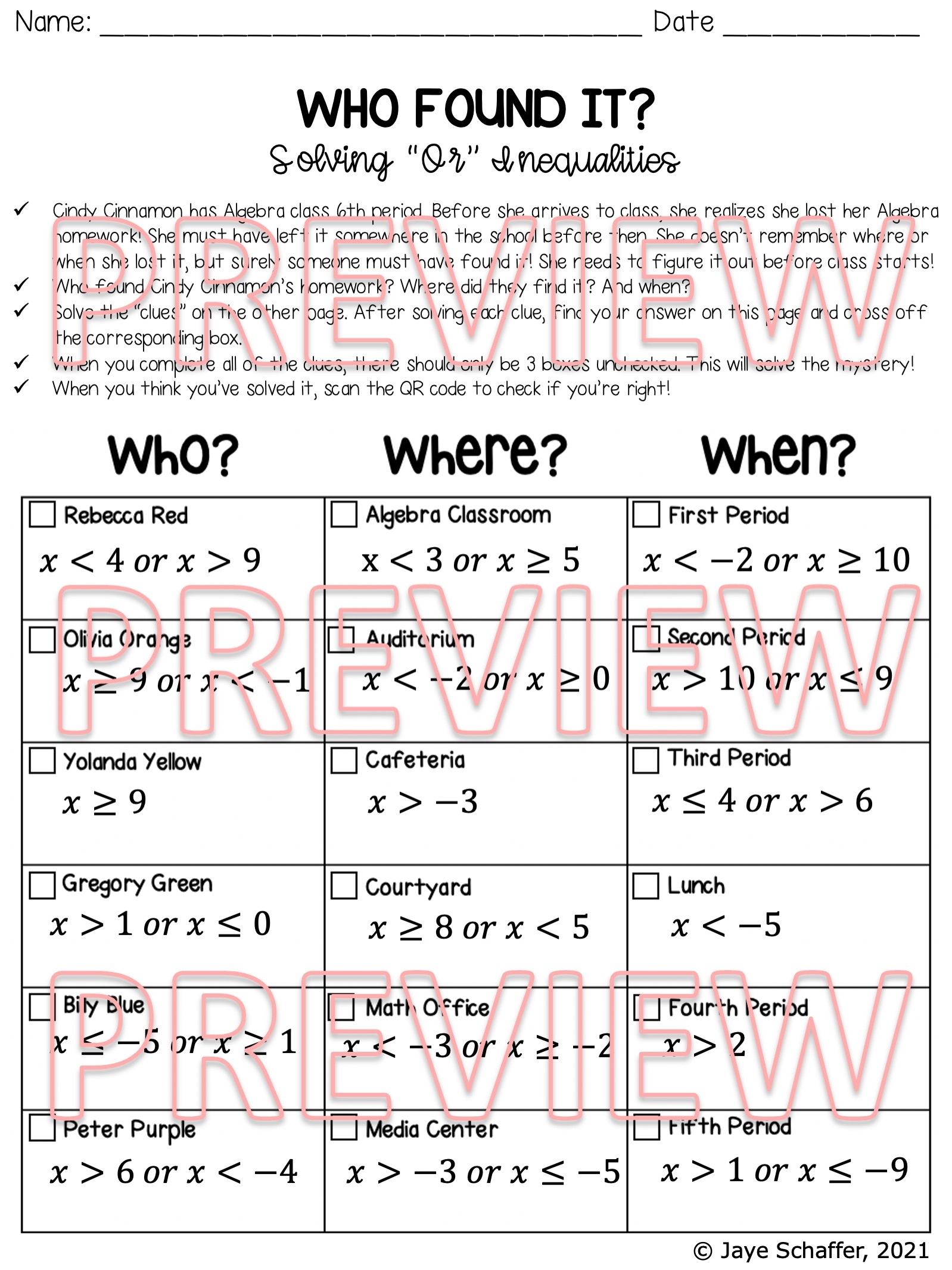Compound inequalities are inequalities that involve two or more inequalities connected by the words “and” or “or.” These types of inequalities are commonly used in mathematics to represent a range of values that satisfy multiple conditions simultaneously. To better understand compound inequalities, students are often given worksheets to practice solving them.
These worksheets typically contain a series of compound inequalities that students must solve by applying the rules of inequality and algebraic manipulation. By working through these worksheets, students can improve their skills in solving compound inequalities and gain a better grasp of how to represent and interpret them.
Compound Inequality Worksheet
When working on a compound inequality worksheet, students are presented with a variety of problems that require them to solve compound inequalities involving inequalities like 2x + 3 > 7 and x – 5 < 2 or -4 < 3x + 1 < 7. These worksheets often include a mix of and/or expressions that challenge students to think critically and apply their knowledge of inequalities.
Students are required to carefully analyze each compound inequality, identify the conditions set by the inequalities, and determine the range of values that satisfy all the conditions simultaneously. This process involves isolating the variable, applying the appropriate operations to both sides of the inequality, and considering the logical relationships between the inequalities.
By practicing with compound inequality worksheets, students can enhance their problem-solving skills, develop their understanding of algebraic concepts, and improve their ability to interpret mathematical expressions. These worksheets provide a structured way for students to practice and reinforce their knowledge of compound inequalities, preparing them for more complex problems in the future.
Overall, compound inequality worksheets are valuable tools for students to practice and master the skills needed to solve compound inequalities. By working through these worksheets, students can build confidence in their ability to tackle challenging mathematical problems and enhance their overall proficiency in algebraic reasoning.
